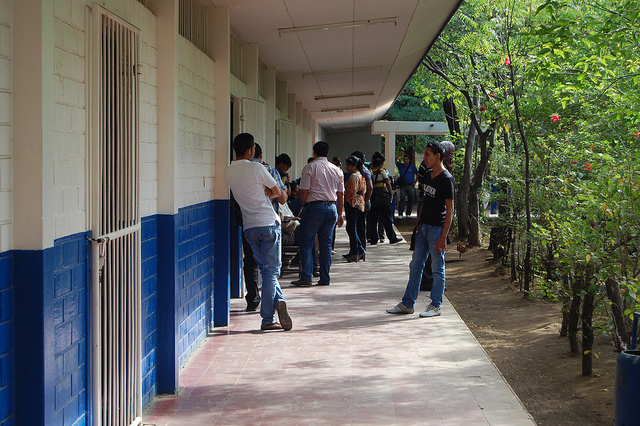Forget about the fighting and shootouts kids are exposed to on TV and in the movies – new research suggests that violence is “contagious” among teens. The study warns that if your child has peers who get involved in physical altercations, they’re much more likely to follow suit.

American scientists out of Ohio State University say that the kids they studied were up to 183 per cent more likely to carry out violent acts if one of their friends did the same.
“Violence is like a contagious disease that spreads through the social network,” Dr. Brad Bushman, a psychology professor specializing in aggression and violence, told Global News.
“People learn how to behave the same way they learn other behaviours – by watching other people and imitating or modelling their behaviour,” he explained.
READ MORE: What happens when mental health education isn’t taught to kids
Bushman collaborated with colleague Dr. Robert Bond, who focuses on studying social networks, for their research. The pair had interesting data – 6,000 interviews with high school students from 142 schools about their history with violence, along with other factors ranging from happiness to lifestyle and even smoking.
The study participants ranged from Grades 7 to 12, and they were interviewed twice over the course of a year.
They were also tasked with naming five male friends and five female friends within their social circles so the researchers could identify social networks within the schools.
They all answered three distinct questions: had they been in a serious fight, how often they hurt someone badly enough that they needed medical attention, and how often had they pulled a knife or gun on someone?
Here’s what they found:
- Kids were 48 per cent more likely to have been in a serious fight if a friend engaged in the same behaviour.
- They were 183 per cent more likely to have hurt someone badly enough to see a doctor or nurse if someone in their friend circle did, too.
- They were 140 per cent more likely to have pulled a weapon on someone if their friend had done the same.
“This analogy that violence is like a contagious disease that spreads from person to person is a powerful one,” Bushman told Global News.
The effects even rippled into extended social networks. Kids were more likely to get into a fight or pull a weapon if friends of friends admitted to the same behaviours.
There were two degrees of separation between kids who hurt someone badly enough to get medical attention, for example.
“The effects weaken the further away. We knew youth are obviously influenced by friends, but we didn’t know they’re influenced by friends’ friends, so it surprised us,” Bushman said.
READ MORE: How mental health should be taught in Canadian schools
The findings were most prominent among boys, too. Girls were most likely to use “indirect forms” of aggression, such as spreading rumours or gossiping.
Bushman said the findings are the first to come from looking at violent behaviour and how it spreads among youth. Typically, research zeroes in on how mass media influences kids.
Bushman’s hope is that ways to cut violence will spread, too. Kids should be taught non-aggressive ways of working out problems, such as negotiation or compromising, he said.
The team’s full findings were published Tuesday in the American Journal of Public Health.
carmen.chai@globalnews.ca
Follow @Carmen_Chai





Comments